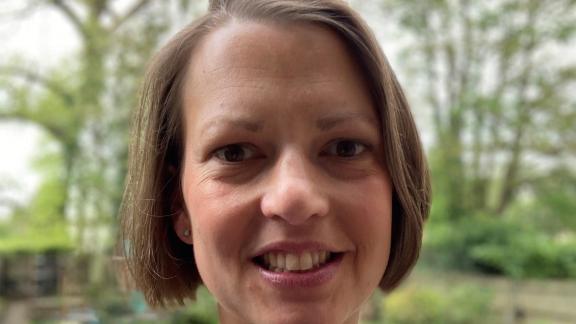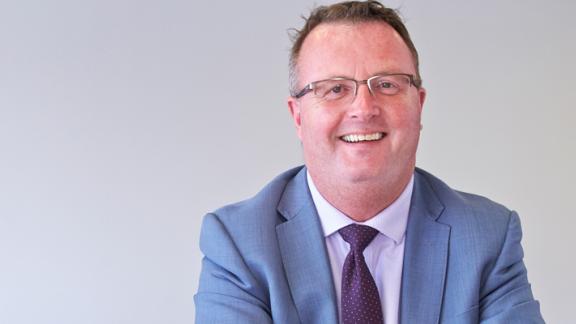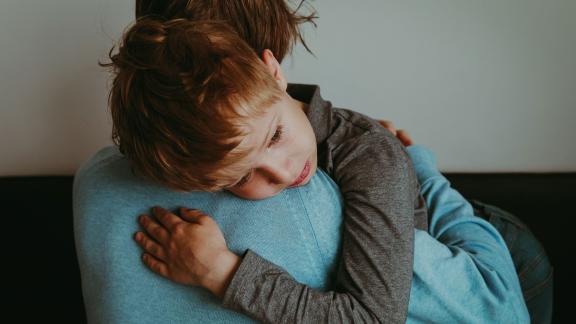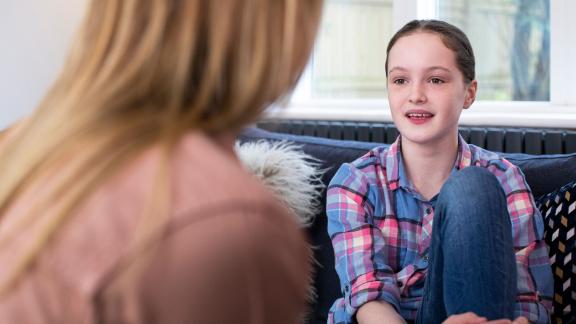Babies’, children's and young people’s mental health

Early relationships between babies and their parents or caregivers are critical to infant mental health. As part of Infant Mental Health Awareness Week, Sally Hogg of the Parent-Infant Foundation calls for strong leadership to join up fragmented policies locally, to ensure every baby has the best start in life.
This week is Infant Mental Health Awareness Week (#IMHAW2022), a chance to focus attention on the wellbeing, and social and emotional development of our youngest children.
Over the last few years, the Parent-Infant Foundation has shone a spotlight on the ‘baby blindspot’ in mental health policies and services. Here are just a few examples:
- In 2019, freedom of information requests found that children’s mental health services in 42 per cent of NHS commissioning (CCG) areas in England would not accept referrals for children aged two and under.
- In 2021, a survey of NHS CAMHS professionals found that during their pre-qualification training, 26 per cent of respondents had not been trained to work with 0–2-year-olds and 48 per cent had not had experience working with this age group.
- This year, a surveyed teachers and early education professionals. Described the impact of a lack of mental health support for young children. As one respondent wrote: “CAMHS support does not take effect until five years. If the impact of trauma was reduced at preschool age we would see less difficulties in primary school and beyond.”
In 2019, the NHS Long Term Plan set out a vision for a comprehensive 0-25 mental health system, with specialist services for all children who need them. Delivering on such a vision requires us to ensure that there are services in place with the specialist expertise to work with our youngest children. Specialised parent-infant relationship teams are multi-disciplinary teams who do this important work.
Parent-infant relationship teams
Led by mental health professionals such as psychotherapists or psychologists with specialist expertise, parent-infant relationship teams offer both therapeutic support to families experiencing severe, complex and/or enduring difficulties in their early relationships, as well as training, consultation, and supervision across health and children’s services.
There are currently 42 parent-infant teams across the UK, all designed slightly differently to respond to the needs of their communities, and often with different names on the ground. Many straddle health and local authority services. For example, in Sefton, a new parent-infant team called the Building Attachment and Bonds Service is funded by Early Help, delivered by the Mersey Care NHS Foundation Trust, and offered in family hubs.
The Parent-Infant Foundation’s Parent-Infant Teams Network brings these teams together to share learning and good practice, champion infant mental health and work together towards the highest standards of practice.
Early relationships between babies and their parents or caregivers are critical to infant mental health, and many other aspects of health and development. New research suggests that the public recognise this and support the work of services like parent-infant teams. In a survey with a representative sample of 2,000 UK adults, 75 per cent responded that early relationships are ‘very important’ and 84 per cent agreed or agreed strongly that health services should offer support to families with issues in early parent-infant relationships.
Policy is promising but it is fragmented, and must be stitched together at a local level to ensure all families can get the right support at the right time
In UK government policy, strengthening early relationships and supporting babies’ emotional wellbeing and development sits across several policy agendas:
- The Start for Life programme contains £100 million for perinatal mental health and parent-infant relationships support.
- In response to the review of children’s social care, the Department for Education is likely to reform help for families who need ‘early help’ or are on the edge of care.
- NHS England is leading on development of mental health services in the perinatal period and for babies, children and young people aged 0-25.
- Family mental health, including infant mental health is one of the high impact areas for health visiting, set out by Public Health England (now OHID).
- The Supporting Families programme now recognises the importance of early years’ development within its outcome framework.
Policy is promising but it is fragmented, and must be stitched together at a local level to ensure all families can get the right support at the right time. This involves leadership and integration at both strategic and operational levels, clear shared priorities and a good understanding of local need. (The Early Intervention Foudation Maturity Matix is a useful tool to understand how effective, mature partnerships operate).
There are statutory duties to support integrated working, such as the duty in the Childcare Act 2006 for local authorities to work with the NHS and others to improve outcomes and reduce inequalities for children aged 0-5 though integrated early childhood services. The new Health and Care Act requires integrated care boards to set out the steps they will take to address the needs of those aged 0-25 in their forward plan.
Some trailblazing local partners have been considering babies’ emotional needs for many years. For example, a key priority of the health and wellbeing strategy in Leeds is giving children the best start in life, and there is clear strategic leadership for the early years in the city, as well as good partnership working between organisations to deliver this. This year, the Leeds Infant Mental Health Service will celebrate its tenth anniversary.
Infant Mental Health Awareness week provides a good prompt to consider some important questions: where do infant mental health and early relationships sit within your local structures and partners? Are you doing all you can to ensure every baby as the best start in life?
Sally Hogg is deputy chief executive of the Parent-Infant Foundation. You can follow Sally on Twitter @salhogg



